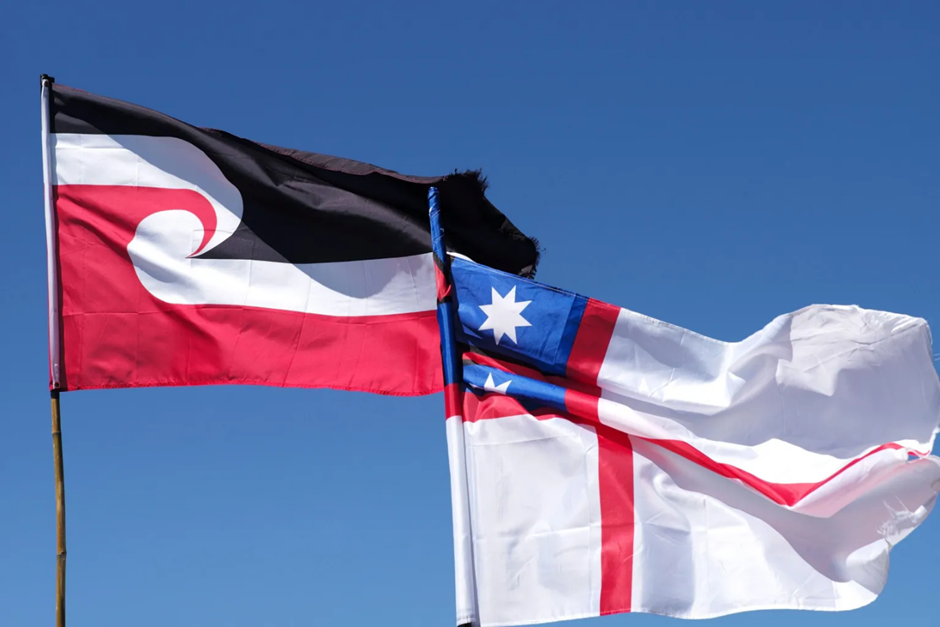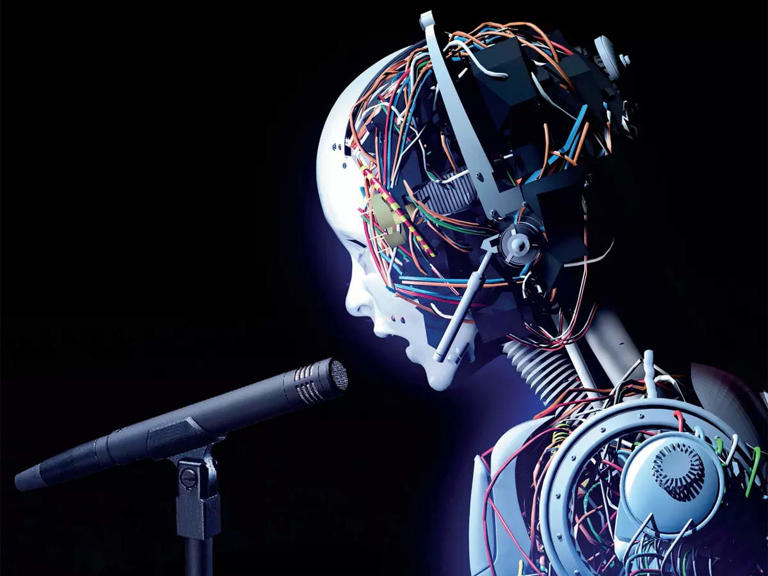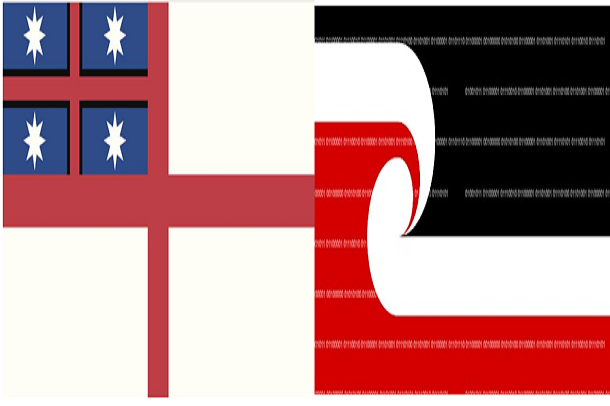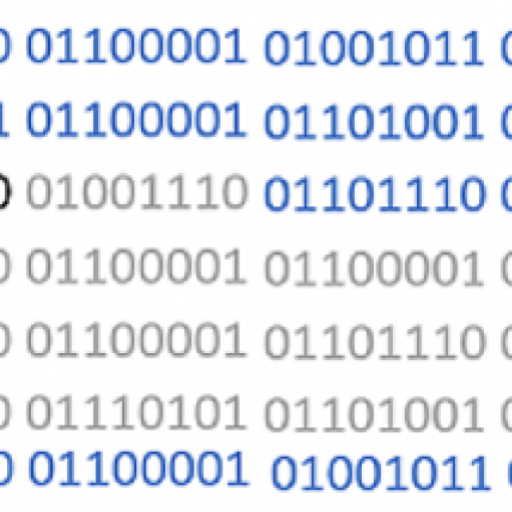The Algorithm charter for Aotearoa New Zealand was released by the New Zealand Government earlier this year. The charter has the potential to further discriminate against Māori than the current biases of Data, Algorithms and Machine learning already does. This discrimination against minorities and women is well documented internationally.
The government also claimed the Charter was an international first, despite other countries having similar charters including Canada’s Digital Charter released in 2019.
The Charter has further significantly failed Māori in three ways.
First.
The advisory group have/had no Māori who are knowledgeable in Te Ao Māori, Matāuranga Māori, nor in addition to advisors who are well regarded within the Māori community with the particular skill sets required, which in this case are Maori digital and technical skills.
These basic requirements of Māori advisors were first added into legislation with the Tūhoe Claims Settlement Act 2014 and then used as a suggested principal with the Plant Varieties Act review 2020 for its proposed Māori Advisory group. The requirements are thorough and remove the common practice of having any Māori on an advisory position, simply because they are Māori and often because the Māori is also an academic. A practice referred to as “ticking the brown box”.
Secondly.
The public consultation on the proposed Algorithm Charter ignored most of the Māori submissions, choosing to only concentrate on Māori Data Sovereignty and stating that it was too complex. As a result of my OIA request, the Māori submissions were published on the data.govt.nz web site. Since then, the Māori submissions have been removed.
Thirdly.
Perhaps the most significant failure that will likely impact Māori is that the Charter does not provide any protection to Māori. What it does, is allows government held data and algorithms, to further prejudice, racially profilng and discriminate against Māori while using the one sentence that claims to protect Māori as justification.
We have already seen a similar clause in legislation that was/is used against Māori and Iwi to racially profile Māori and illegally uplift Māori babies without consultation. Section 7A of the Oranga Tamariki Act 1989 gives Māori and Iwi assurances that the CEO of the department is committed to the Treaty of Waitangi and cultural practices. The one sentence in the AI Charter is horrifyingly similar in intent, and I see no reason why the sentence will not have the same negative impacts.
Judge Becroft, New Zealand’s Children Commissioner spoke out about the racism within the department and illegal uplifts of babies and the inter generational trauma caused in his report. A Waitangi Tribunal Claim has been initiated to address the issues. We also saw a powerhouse of Māori leadership including Dames: Merepeka Raukawa-Tait, Tariana Turia, Iritana Tawhiwhirangi who have spoken out about the issues.
Another perceived concern is that considering that Māori are in the higher end of negative statistics and biases of many of the department signatories including: The Department of Corrections; The Ministry of Justice; Oranga Tamariki; The Ministry of Social Development and The Ministry of Health, the AI Charter does not actually provide any commitments to protecting and neutralising Māori rights and bias with Maori data and algorithms.
Analysis of the one sentence in the Charter that recognises Māori
This is the one statement in the AI Charter that is intended to protect Māori.
“Deliver clear public benefit through Treaty commitments by: Embedding a Te Ao Māori perspective in the development and use of algorithms consistent with the principles of the Treaty of Waitangi.”
Considering that internationally, it is well documented that minorities are discriminated against with AI, Algorithms and Data and the fact that within New Zealand, Māori face inter generational unconscious and conscious discrimination by government departments, the government of the day could only provide one ambiguous sentence to protect Māori. This is a huge disappointment that the advisors ill informed the government of the day.
Treaty commitments
By stating a commitment to the Treaty (controversially perpetuating the broken promises of the government that successive governments have tried so hard to repair and not committing to the Māori version called Te Tiriti) the AI Charter is ignoring the three Treaty of Waitangi principles commonly recognised by government and first outlined in the Royal Commission on Social Policy (1988) as:
- Partnership: interactions between the Treaty partners must be based on mutual good faith, cooperation, tolerance, honesty and respect
- Participation: this principle secures active and equitable participation by tangata whenua
- Protection: government must protect whakapapa, cultural practices and taonga, including protocols, customs and language.
From my popular publication Treaty of Waitangi/Te Tiriti and Māori Ethics Guidelines for: AI, Algorithms, Data and IOT “These three principles cover the need for: Co-Governance, Co-Design and Co-Innovation. These principles should form the basis of an explicit Te Tiriti/Treaty of Waitangi clause for any government initiated and or procured Artificial Intelligence Systems and or Algorithms. Government agencies should refer to “Te Arawhiti – Treaty of Waitangi Guidance” paper for further details.”
The one sentence statement is ambiguous and could be read in multiple ways that ignore Māori and the Treaty obligations of the signatory department.
Te Ao Māori
The AI Charter are committing the signatories to embedding a Te Ao Māori perspective. Which only stereotypes an inter-generational colonial perspective that all ‘Maoris’ think the same and is a bureaucratic use of the word.
The result of this one sentence to protect Māori will likely significantly increase discrimination against Māori. In the same manner that the The Native Schools Act 1867, Tohunga Suppression Act 1907, he Hunn Report 1960 and the many other attempts by the New Zealand government to protect Māori rights, will likely be a new cultural assimilation tool that will simply re colonise Māori again.
This sentence also contradicts the sentence at the beginning of the AI Charter where it is explicitly states that the charter can not consider Māori Data Sovereignty.
“However, it cannot fully address important considerations, such as Māori Data Sovereignty, as these are complex and require separate consideration.“
Māori Data Sovereignty encompasses a number of layers what Te Ao Māori and can not be excluded form the term Te Ao Māori at will or when is suits. You either have a Te Ao Māori perspective or you don’t. In the case of the AI Charter – you don’t.
In Treaty of Waitangi/Te Tiriti and Māori Ethics Guidelines for: AI, Algorithms, Data and IOT I state the following about the so called “Te Ao Māori Perspective”.
Increasingly bureaucrats and academics are using the term Te Ao Māori as fluid term when it is convenient to include a Māori perspective and there are increasingly assumptions that there is a single Māori worldview.
Te Ao Māori acknowledges the interconnectedness and interrelationship of all living and non-living things via a spiritual, cognitive, and physical lenses. This holistic approach seeks to understand the while environment, not just parts of it. There is no one Māori world view, in as much as there is no one New Zealander world view. Māori are diverse as a people. The term is sometimes incorrectly interchanged with the term ‘mātauranga. Mātauranga refers to soundly based knowledge and how it is attained. However, as colonisation proceeded, its range was extended to include education and knowledge generally, along with information (Benton, Frame, Meredith, & Te Mātāhauariki, 2013).
In Te Ao Māori, all knowledge is sacred and a taonga. According to our cosmology stories, Tāne, one of the more than 70 children of Rangi and Papa, is the creator of the human race, ascended into the heavens and brought back all of the worlds data and knowledge to share with human beings.
Colonisation
For over 260 when Captain Cook and his ship the Endeavour visited New Zealand, Māori culture has been integrated into European culture by colonisation, intermarriage, introduced and forced religion, urbanisation, wars, mass murders, land theft, government-imposed cultural assimilation and racist policies including segregation of Māori communities in towns such as Pukekohe (Bartholomew, 2020). As a result, many Māori ignored or abandoned (forced or by choice) their traditional knowledge systems and beliefs. Elsdon Best remarks that the old men of Tūhoe will assert that the greatest aitua of modern times was their forsaking the ancient beliefs, religion, customs, tapu, etc., of their race and the adaption of those of the white man. Hence the degeneration lack of vitality and lessoned numbers of the Māori people. (Best, 1972, p. 1014).
Consideration of who you seek Māori advise from is also essential. All Māori are born with whakapapa, but not all Māori are Māori practitioners. In 1970, Sir Timoti Karetu expressed his concerns at the lack of understanding of Kawa (protocols, customs) in marae (Karetu, 1970). Sir Hirini Mead asserted that in 1979 it was obvious that few people really understood tikanga, and this included our own people (Mead, 2016). Ngāi Tūāhuriri Upoko and Canterbury University Scholar, Professor Te Maire Tau has described the lack of cultural knowledge within the Ngāi Tahu Iwi “Ngāi Tahu have been so colonised and have lost their identity, that it would be difficult to garnish any traditional knowledge. (Tau, 2001, p. 148).
Conclusion
It is incorrect to assume there is one Māori perspective. The term “Te Ao Māori Perspectives” should only be included in AI, Data, IOT and Algorithm documentation after careful consideration and consultation. …
In my own submission to the AI Charter, I state the following:
“The term “te Ao Māori” is used without substance nor understanding its meaning. Nothing at all in the document refers to “Te Ao Māori” except in word only.”
AND
“There is no Te Ao Māori or Tiriti recognition in the six principles for the safe and effective use of data and analytics by government agencies. This further reinforces that the terms Treaty of Waitangi and Te Ao Māori are being used only in a tokenistic way.”
Another example of the Advisory group ignoring common Māori cultural beliefs (Te Ao Māori) and using Māori cultural values with no knowledge of what they mean and their implications to Māori.
Chief Data Steward Data – a broken commitment to Māori
The Chief Data Steward of the time (Liz MacPherson) made a commitment to Māori in an open document called “Data Strategy and Roadmap For New Zealand December 2018”. In this commitment, the Chief Data Steward stated it recognises the importance of the Treaty of Waitangi and two Māori values in particular Manaakitanga and Kaitaiakitanga. That the government road map recognises Data as a Taonga.
Below is a copy of the commitments to Māori in 2018 that have been broken. The original document is at https://www.data.govt.nz/assets/Uploads/data-strategy-and-roadmap-dec-18.pdf
Commitment to the Crown-Māori Treaty Partnership (2018)
New Zealand recognises the importance and value of the Treaty of Waitangi that establishes Māori as Partners with the Crown. There are new opportunities for the Crown to engage with Māori on the full breadth of issues in the current environment to ensure the Crown is meeting its Treaty obligations and supporting Māori to activate their full potential in a new world of possibility. Two Māori values in particular will support a trusted data system: manaakitanga (data users show mutual respect) and Kaitiakitanga (all New Zealanders become the guardians of our taonga by making sure that all data uses are managed in a highly trusted, inclusive, and protected way).
In 2020 the current Chief Data Steward (Mark Sowden) has broken that commitment from his predecessor by not consulting with Treaty principles or with Māori regarding the AI Charter. The Chief Data Steward has also ignored the key Māori values of Manaakitanga and Kaitiakitanga.
Signatories
The Office for Māori Crown Relations are experts in their own area but un-likely to have any experts with AI and knowledge of the myriad of international discriminatory cases of AI with minority groups, especially Indigenous Peoples. I also note that Te Puni Kōkori Ministry of Māori Development are not signatories.
- The Department of Corrections Te Ara Poutama Aotearoa
- The Ministry of Education Te Tāhuhu o Te Mātauranga
- The Ministry for the Environment Te Manatū Mō Te Taiao
- The Ministry of Housing and Urban Development
- Inland Revenue Department Te Tari Taake
- The Ministry of Justice Te Tāhū o te Ture
- Land Information New Zealand Toitū Te Whenua
- The Ministry of Māori Development Te Puni Kōkiri
- Oranga Tamariki – The Ministry for Children
- The Ministry for Pacific Peoples
- The Ministry of Social Development Te Manatū Whakahiato Ora
- Statistics New Zealand Te Tatauranga Aotearoa
- The Ministry of Transport Te Manatū Waka
- Te Kāhui Whakamana Rua Tekau mā Iwa—Pike River Recovery Agency
- The Ministry for Women Te Minitatanga mō ngā Wāhine
- Social Wellbeing Agency Te Hau Tāngata
- New Zealand Defence Force Te Ope Kātua o Aotearoa
- Accident Compensation Corporation Te Kaporeihana Āwhina Hunga Whara
- Department of Internal Affairs Te Tari Taiwhenua
- The Office for Māori Crown Relations Te Arawhiti
- The New Zealand Transport Agency Waka Kotahi
- The Education Review Office Te Tari Arotake Matauranga
- The Ministry of Business, Innovation, and Employment Hīkina Whakatutuki
- The Ministry of Foreign Affairs and Trade Manatū Aorere
- The Ministry of Health Manatū Hauora






Leave a Reply
You must be logged in to post a comment.